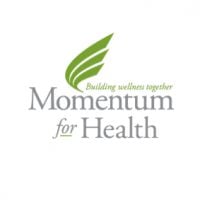The Camp Recovery Center - San Jose
Drug Rehab Center in San Jose, California
A New Life For Women is a trusted and experienced provider of addiction treatment services in Jacksonville, FL, offering comprehensive aftercare support, drug rehab programs and outpatient levels of care tailored to meet the individual needs of each client, as well as accepting private health insurance for greater access to the care they need and deserve.
Multiple patients have reported The Camp Recovery Center - San Jose as permanently closed.
Research other rehabs in San Jose, California, or get help finding an open facility.
About The Camp Recovery Center - San Jose in California
The Camp Recovery Center - San Jose, located in San Jose, California, is a treatment facility that specializes in helping individuals struggling with alcoholism, opioid addiction, dual diagnosis, and drug addiction. They offer a range of services and treatment options for those looking to get sober and start their recovery journey. With a focus on personalized care and evidence-based practices, The Camp Recovery Center - San Jose provides a supportive environment where individuals can receive the help they need.
At The Camp Recovery Center - San Jose, clients can benefit from various services geared towards overcoming addiction and substance abuse. Their comprehensive approach includes aftercare support to promote long-term sobriety. Offering drug rehab programs at different levels of care such as intensive outpatient and outpatient treatment allows clients to tailor their recovery plan according to their needs. Using evidence-based treatments like counseling therapy sessions and group therapy sessions enables individuals to explore underlying issues contributing to their addiction while gaining valuable skills for sustainable recovery.
Genders
Ages
Modality
Additional
Conditions and Issues Treated
Opioid addiction treatment should be done in a medically supervised drug rehab. While taking opioids, users will typically use other substances to enhance the effects of opioids or to reduce the adverse effects of opioid use. Opioid addiction treatment will include detoxification and drug rehab counseling to help both the user and their loved ones learn how to live a successful sober lifestyle.
Treatments such as methadone, buprenorphine, and naltrexone are three medications that can help treat opioid addiction. These drugs work on the brain’s pleasure center and reduce cravings and the effects of illicit opioids such as heroin. These drugs can be either given orally or by injection. Individual drug rehab counseling sessions can be helpful to discuss any questions or concerns with the drug treatment program. This counseling will also help the user set goals for when they finish drug rehab.
Opioid addiction recovery is a long process. Many of the changes to the brain caused by opioid use cannot be undone, but with time and the proper treatment, a person can return to normal function. After detox, treatment will include drug rehab counseling and entering a halfway house or sober living community. Aftercare is critical to long-term recovery, as it helps the user avoid relapsing and entering back into drug rehab.
Levels of Care Offered
This center offers a variety of custom treatment tailored to individual recovery. Currently available are Aftercare Support, Drug Rehab, Intensive Outpatient, Outpatient, with additional therapies available as listed below.
Intensive outpatient treatment is a type of comprehensive addiction care. Unlike conventional residential treatment programs, the patients live at home during the recovery process. This means that one can continue working and caring for their families. These also allow people to keep pursuing their studies while also working on their sobriety.
Outpatient treatment can help one transition to normal life from the round-the-clock supervision and treatment available during inpatient treatment. It is an excellent tool to ensure long-term recovery. However, it is essential to note that intensive outpatient treatment in itself does not remove patients from the real-world setting. This means there’s always a higher risk of coming across environmental triggers. To further prevent relapse, an outpatient treatment center should be able to provide ongoing support services.
Once the patient is enrolled in an intensive outpatient treatment program, they will be expected to attend therapy and group meetings daily for a stipulated period. The frequency and duration of each session will depend on the patient’s needs and level of addiction. This can help curb the habit and deal with underlying issues that led to it. Most of these professional treatments are designed to allow patients to structure their daily schedules in a way that is conducive to recovery.
“Outpatient treatment is ideal for those who have a lower intensity addiction. It’s also suitable for those with a supportive environment and those on a tight budget.
Outpatient treatment can be considered the lowest intensity level of addiction treatment. It is ideal for early phase addiction or lower intensity addictions. It may involve weekly sessions instead of daily. Peer group support, 12-step programs, and individual counseling may still be used and anti-addiction medication.
Aftercare support is vital to those who have completed a drug or alcohol treatment program. This support comes in individual and family counseling, treatment of psychiatric and other medical conditions, and medications to reduce cravings. It helps recovering addicts adjust to normal day-to-day activities and can last for a year or longer.
The majority of drug and alcohol addicts who receive aftercare treatment do not relapse. It is estimated that without aftercare, the relapse rate will be between 70 to 90 percent for most people. Aftercare is the final stage in addiction recovery, but it will also help maintain sobriety if relapse does occur.
Therapies & Programs
No single treatment works for all addicts; therefore, the goal of treatment and therapy should be to find what works best for each individual. Some people requiring addiction treatment may only need a few weeks of inpatient care. Others will require long-term residential care. Tolerance and withdrawal levels vary from person to person and thus affect the intensity of the treatment needed.
If an individualized approach to treatment and therapy is not offered, addicts may fail to reap benefits from their efforts. Professionals must customize plans according to their patient’s needs, limitations, and strengths. The goal of all forms of addiction treatment should be for addicts to find healthy ways to cope with their addiction and its underlying causes.
Couples therapy for drug addiction is a unique form of therapy that allows family members to work through the emotional issues of their loved one’s addiction together. Family members can support each other while learning how to cope with the addiction and encourage healthy changes.
Accordingly, couples therapy for drug addiction is designed for an addict and their significant other or spouse. The two will work with a therapist to learn how the addiction affects themselves and the relationship and how to break the negative patterns of behavior that may have developed.
Drug addiction can destroy a person’s life, as well as their family and friends. The loss of one’s ability to choose how to live and behave often leads the addict into depression, anger, guilt, and many emotional problems.
The therapies usually include siblings, children, and parents who are involved in their daily lives. These sessions are vital because they address past issues that may have hampered an addict’s or alcoholic’s recovery and provide support at a crucial time!
One of the most critical aspects of family therapy is helping addicts’ loved ones see their situation in a new light. It’s also one of the most challenging things a family can do when a loved one struggles with addiction or alcoholism.
Group therapy is held in a safe, controlled setting where patients can feel comfortable sharing their struggles and gaining perspective through shared conversations. It takes place in a group rather than one on one to prevent feelings of isolation or being unique in their situation while creating an environment for addicts at The Camp Recovery Center - San Jose to develop fellowship, accountability, and support. Group therapy is an important tool in recovery that prevents cravings that prompt a return to active addiction.
Payment Options Accepted
For specific insurance or payment methods please contact us.
Is your insurance accepted?
Ask an expert, call (888) 674-0062
The Camp Recovery Center Associated Centers
Discover treatment facilities under the same provider.
- The Camp Recovery - Campbell Outpatient Treatment in Campbell, CA
- The Camp Recovery Center - Scotts Valley in Scotts Valley, CA
- The Camp Recovery Center - Campbell in Campbell, CA
Learn More About The Camp Recovery Center Centers
Additional Details
Specifics, location, and helpful extra information.
San Jose, California 95128 Phone Number(408) 367-2190 Meta DetailsUpdated November 25, 2023
Staff Verified
The Camp Recovery Center - San Jose Patient Reviews
There are no reviews yet. Be the first one to write one.
San Jose, California Addiction Information
More than 3 million of California's citizens are addicted to illegal drugs. Almost 800,000 people use hard drugs, almost 5 million use marijuana, and another 2.1 million abuse alcohol every year. Other substance abuse issues such as binge drinking and teen drug use are also common. Many illegal drugs such as cocaine, heroin, methamphetamine, and marijuana are smuggled into the state from Mexico.
The most commonly abused drugs in San Jose are marijuana, methamphetamine, and cocaine. Young adults in San Jose were also more likely to use marijuana than adults aged 26 and older. In San Jose, there were 958 emergency room visits to drug overdoses in 2016. There are treatment facilities available that can help those struggling with addiction get sober.
Treatment in Nearby Cities
- Oxnard, CA (266.0 mi.)
- Eureka, CA (268.6 mi.)
- Agoura Hills, CA (282.5 mi.)
- Santa Fe Springs, CA (318.4 mi.)
- Walnut Creek, CA (41.1 mi.)
Centers near The Camp Recovery Center - San Jose
The facility name, logo and brand are the property and registered trademarks of The Camp Recovery Center - San Jose, and are being used for identification and informational purposes only. Use of these names, logos and brands shall not imply endorsement. RehabNow.org is not affiliated with or sponsored by The Camp Recovery Center - San Jose.




